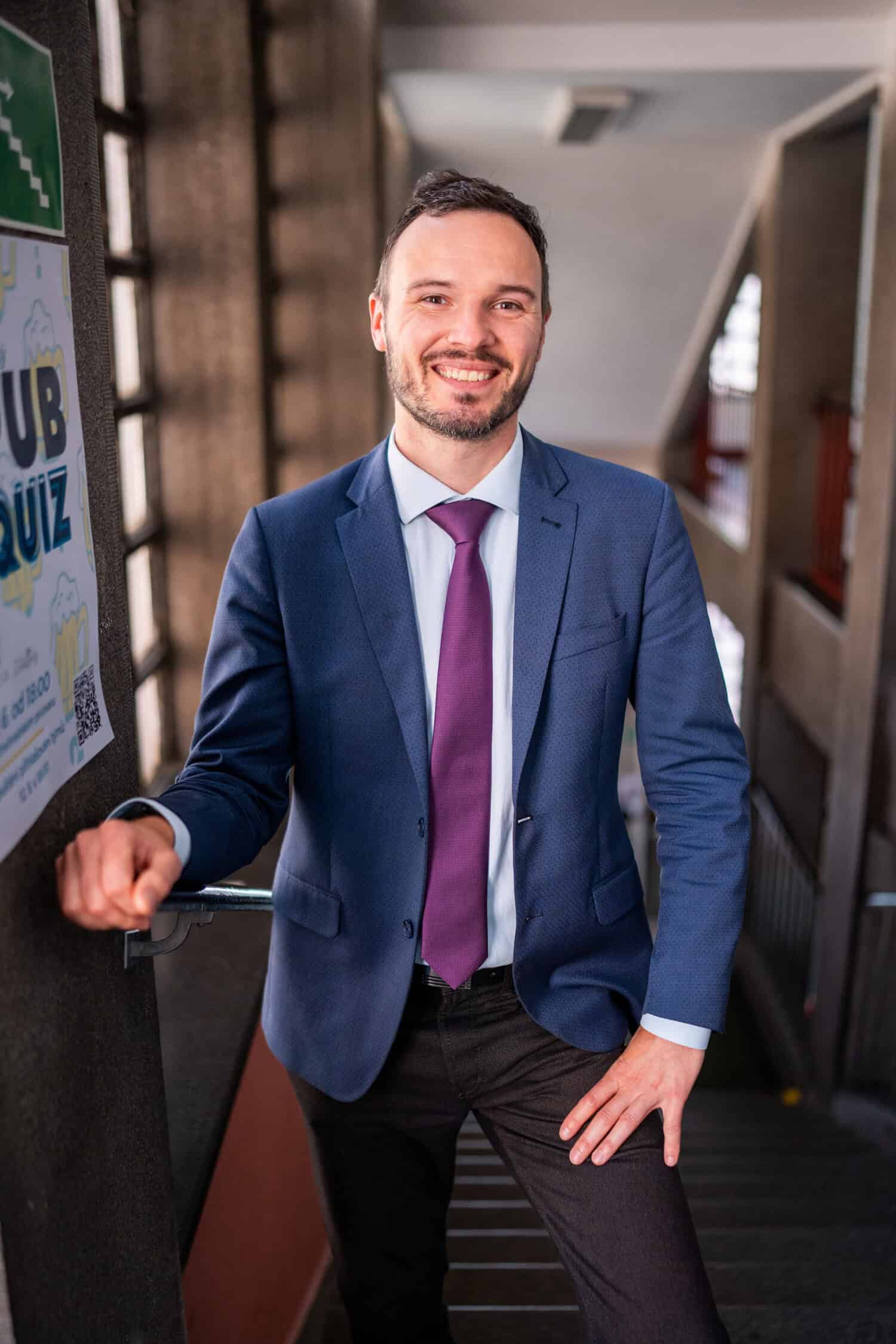
doc. PhDr.
Martin Rusek
Ph.D.
deputy head of the department, associate professor
Thursdays 15:20-16:20 and anytime after e-mail arrangement
R 202
Theses topics
Martin is actively involved in music, from singing to playing the Czech bagpipes to the electric guitar. At present, when he bites through an ego severely tested by the cruel truth that he is not good at it, he prefers to play the piano. He also likes to do sports. His adrenaline cocktail includes heights on the climbing wall, dynamics on the volleyball court and memories of the days when he ruled the amateur league with a badminton racket. And because he believes that a true traveler should know at least the basics of the language of the country he is visiting, he became a DuoLingo enthusiast. His more than six-year streak on this platform is a testament to his passion for languages and constant desire to learn new things.
- vice dean for science Faculty of Education, Charles University
- deputy head of Department of chemistry and chemistry education
Education
- 2022 – Associate Professor of Chemistry Didactics (UK PřF)
- 2013 – doctor of education with specialization in chemistry didactics (UK PedF)
- 2010 – teacher of chemistry and technical and information education (UK PedF)
International experience
- 05-09/2022 University of Jyväskylä, Finland – Visiting Fellow Researcher
- 05-09/2015 Martin-Luther University Halle-Wittenberg, Germany – Visiting professor
Expertise
- Didactics of chemistry, didactics of science subjects
- Curriculum analysis and development,
- identification of competence to solve problems using eye-tracking,
- the use of AI in teaching chemistry
Other
- Founding member and coordinator of the Special Interest Group for Eye-tracking under the European Science Education Research Association
- Member of the editorial board of Scientia in Educatione and editor for chemistry
- Guarantor for revision of FEP (NPI)
H-index: 11
Of teachers and textbooks: lower secondary teachers’ perceived importance and use of chemistry textbook components. Chemistry Education Research and Practice, 23(4), 786-798. https://doi.org/10.1039/D2RP00083K
“Do you just have to know that?” Novice and experts’ procedure when solving science problem tasks. Frontiers in Education, 7. https://doi.org/10.3389/feduc.2022.1051098
Analysis of text difficulty in lower-secondary chemistry textbooks. Chemistry Education Research and Practice, 20(1), 85-94. https://doi.org/10.1039/C8RP00141C
Science education textbook research trends: a systematic literature review. International Journal of Science Education, 41(11), 1496-1516. https://doi.org/10.1080/09500693.2019.1613584
Students’ Procedure When Solving Problem Tasks Based on the Periodic Table: An Eye-Tracking Study. Journal of Chemical Education, 98(6), 1831-1840. https://doi.org/10.1021/acs.jchemed.1c00167
The Intellectual Demands of the intended chemistry curriculum in Czechia, Finland, and Turkey: A comparative analysis based on the Revised Bloom’s taxonomy. Chemistry Education Research and Practice, 21, 839-851. https://doi.org/10.1039/D0RP00058B